 ENCYCLOPEDIA OF ANCIENT DEITIES ENCYCLOPEDIA OF ANCIENT DEITIES by CHARLES RUSSELL COULTER and PATRICIA TURNER
ENCYCLOPEDIA OF ANCIENT DEITIES ENCYCLOPEDIA OF ANCIENT DEITIES by CHARLES RUSSELL COULTER and PATRICIA TURNER  Copyright 2000 by Patricia Turner and estate of Charles Russell Coulter Published by special arrangement with McFarland & Company, Jefferson, North Carolina All rights reserved including the right of reproduction in whole or in part in any form. First published in the USA and UK 2000 by FITZROY DEARBORN PUBLISHERS 919 North Michigan Avenue Suite 760 Chicago, IL 60611 U.S.A. 310 Regent Street London W1R 5AJ England This edition published 2012 by Routledge
Copyright 2000 by Patricia Turner and estate of Charles Russell Coulter Published by special arrangement with McFarland & Company, Jefferson, North Carolina All rights reserved including the right of reproduction in whole or in part in any form. First published in the USA and UK 2000 by FITZROY DEARBORN PUBLISHERS 919 North Michigan Avenue Suite 760 Chicago, IL 60611 U.S.A. 310 Regent Street London W1R 5AJ England This edition published 2012 by Routledge
| Routledge | Routledge |
| Taylor & Francis Group | Taylor & Francis Group |
| 711 Third Avenue | 2 Park Square, Milton Park |
| New York, NY 10017 | Abingdon, Oxon, OX14 4RN |
Library of Congress and British Library Cataloging-in-Publiaction Data are available ISBN 1-57958-270-2 In memory of Charles Russell Coulter
Patricia, Turner TABLE OF CONTENTS
The Encyclopedia Proper For a number of reasons having to do with the intermingling of Western name styles, indigenous and non-Western styles, phrases in English, and alternate name forms (including, for instance, two or more elements closed up as one word, such elements linked with hyphens, and such elements separated as two words), it was determined that the most useful alphabetization scheme would be what is commonly known as word-by-word (as opposed to letter-by-letter spread over any number of words or word parts). In this scheme, in the encyclopedia proper, two or more elements linked by hyphens are treated as separate words (the hyphen being purely a recent Western orthographical construct). Thus in the encyclopedia (i.e., main) portion of the book, Aka, Aka-Kanet, Aka Maneh, Akadja is one sequence and Ti-yu, Tiamat is another. Many, probably most of the entry names have two or more spellings (as distinct from the matter of two or more elements closed up, hyphenated or separated).
This is especially true of names that have for a long time been a part of or adapted by Western culture (e.g., Greek, Norse, Egyptian, Indian, Chinese). Some names have four to six or even more alternate spellings or similar versions. Many but not all alternate versions of a name are entered into the main entry sequence as see references. The one entry to which they all refer may well list yet additional spellings or alternate forms of a name. In effect there has been, out of necessity, an effort in many but not all cases to discover or decide upon the most common form of a name for purposes of determining where in the alphabetical sequence a main entry shall appear. No similar effort was, however, extended to regulating the spelling or form of any name appearing secondarily within the text of an entry.
In some cases a most common form was not identifiable or was considered a matter of cultural or linguistic bias or in some way was almost entirely subjective; in these cases, one main entry form was simply chosen and the others subordinated as see references. The Index The index must serve numerous purposes, not least of which is as an alternate to or clarification of the main entry alphabetization sequence. Accordingly, it is arranged similarly, in a word-by-word fashion, but with hyphenated forms now considered one word (so that the reader has additional opportunities to locate a name form for which they search). Thus, there appears the sequence
| Aka | Akadja | Akalo |
| Aka Manah | A-Kahiwahiwa | Aka-Manah |
| Aka Mano | Aka-Kanet | Akamas |
and the sequence
| All | Al-lat | Alligator |
| All Merciful, The | Allath | Alloprosallos |
| All Pitying One | Allatu | All-pervader |
| All Sinned One | All-Caring | All-seeing |
| Allah | All-Devouring | almond trees |
| Allat | Allecto |
Virtually all alternate spellings and forms of a name appear in the index (whereas in the encyclopedia proper only several of what were determined to be the most important alternate forms were entered as see references). Index references are to pages upon which any appearance of a name exists, notably in the text of entries under other deities or subjects. The reader must therefore consult the index under two or more alternate spellings to be sure of locating all references to the appearance of a name: that is, under both Algonquian and Algonquin, both Texcatlipoca and Tezcatlipoca, and both Viracocha and Virococha.
The great majority of alternate spellings in the index nevertheless simply refer to the main entry, not to subsidiary appearances under other entries. The index also contains, as subjects, many ordinary English-language words and phrases, a major reason for the adoption of the word-by-word approach. Throughout history, humans have pondered the question of their existence. In nearly every society, part of the answer has included some form of god or goddess involved in the creation of the universe. This encyclopedia was compiled to give the general reader and scholars easy access to a broad range of mythologies related to deities. In addition to ancient deities, other mythology is included that will facilitate a comprehensive understanding of the deities so there are entries for spirits, places, festivals, sacred objects, heroes, monsters, demigods and mythical beasts.
The research was extensive, covering a century of book publishing activity. We made use of a large personal library, collected over many years, on this topic. Research was carried out in a number of libraries outside the United States, and the Bibliography includes citations to many books published in those countries. As a result the reader will find deities often missing from standard collections, notably from the Inuit, Native American and African cultures. At over 10,000 entries, this is the most comprehensive collection of information on this topic. The primary name of the deity is followed by alternate spellings or translations of the primary name.
Then in parentheses the group of people (tribes, cultures, civilizations or people who lived in a geographic region) who recognized the deity or mythology is named. All alternate names are then given. All alternate names and alternate spellings are cross-referenced. An explanation of the origin, history and function of the subject of the entry is followed by any needed cross-references to guide the reader to related topics. A comprehensive index permits direct access to any name by any of its spelling variants, as well as to the religions, cultures and places identified in the text. Also indexed are subjects, especially including those with which a deity is associated; a reader may, for example, locate goddesses of lightning or gods represented by toads by consulting the respective entries in the index.
My coauthor, Charles Coulter, passed away in 1997 shortly after we delivered this manuscript, which had occupied much of his time and mental energy during his last ten years. I am deeply grateful for his effort. PATRICIA TURNER August 1999
Next page
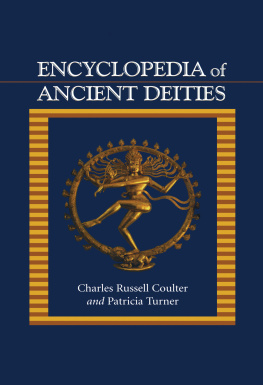

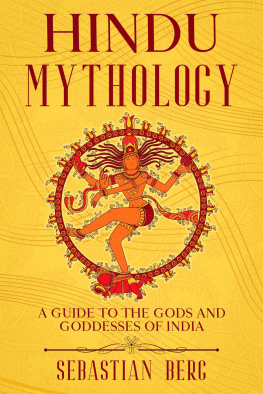
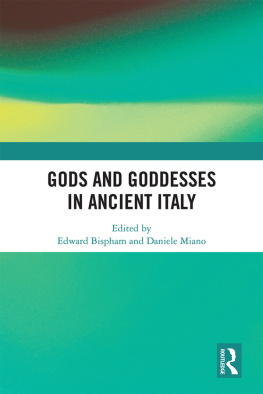
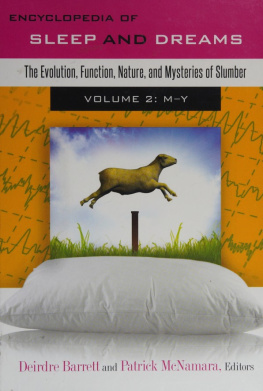

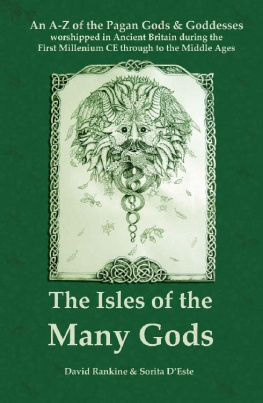
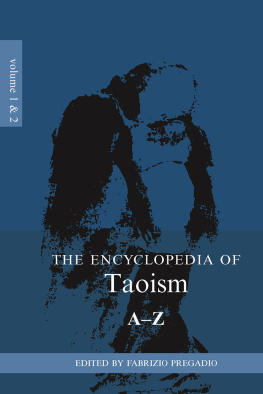
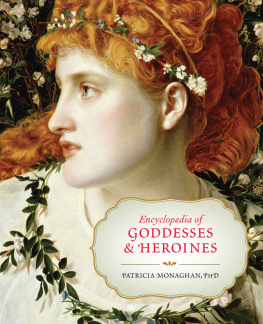
 ENCYCLOPEDIA OF ANCIENT DEITIES ENCYCLOPEDIA OF ANCIENT DEITIES by CHARLES RUSSELL COULTER and PATRICIA TURNER
ENCYCLOPEDIA OF ANCIENT DEITIES ENCYCLOPEDIA OF ANCIENT DEITIES by CHARLES RUSSELL COULTER and PATRICIA TURNER  Copyright 2000 by Patricia Turner and estate of Charles Russell Coulter Published by special arrangement with McFarland & Company, Jefferson, North Carolina All rights reserved including the right of reproduction in whole or in part in any form. First published in the USA and UK 2000 by FITZROY DEARBORN PUBLISHERS 919 North Michigan Avenue Suite 760 Chicago, IL 60611 U.S.A. 310 Regent Street London W1R 5AJ England This edition published 2012 by Routledge
Copyright 2000 by Patricia Turner and estate of Charles Russell Coulter Published by special arrangement with McFarland & Company, Jefferson, North Carolina All rights reserved including the right of reproduction in whole or in part in any form. First published in the USA and UK 2000 by FITZROY DEARBORN PUBLISHERS 919 North Michigan Avenue Suite 760 Chicago, IL 60611 U.S.A. 310 Regent Street London W1R 5AJ England This edition published 2012 by Routledge